Winston Vasnani, or Vas Designs, as he’s known to clients, is a tattoo artist in Ghana who has been in the profession for almost eight years.
Running his tattoo shop out of his home in Tema, a city east of Accra, Winston is mostly self-taught. He learnt mostly through research and online classes.
His list of clients includes married couples, pastors, people who practice Hinduism, and work professionals, including lawyers.
When working with a client, Winston says it can take almost three to four hours for one session at his tattoo studio, which he maintains to a high standard of hygiene.
He himself sports some tattoos of his own, including his company name and Adinkra symbols.
Winston is one of the many established tattoo artists in Ghana. The art of tattooing is gradually becoming a form of self-expression, artistry, and cultural identity in local communities.

Tattoos have become more fashionable and are being influenced by global trends, social media, and a younger generation that embraces body art as a means of personal storytelling.
However, despite this growing acceptance, societal stigma still lingers in Ghana, particularly in conservative and religious spaces.
Tattoos Have Always Been Part of African Culture
In pre-colonial Ghana, as in much of West Africa, body marking—including tattooing and scarification—was a significant cultural practice among various ethnic groups, such as the Akan, Ewe, Ga, and Dagomba.
These markings were not merely decorative but carried deep social, spiritual, and functional meanings.
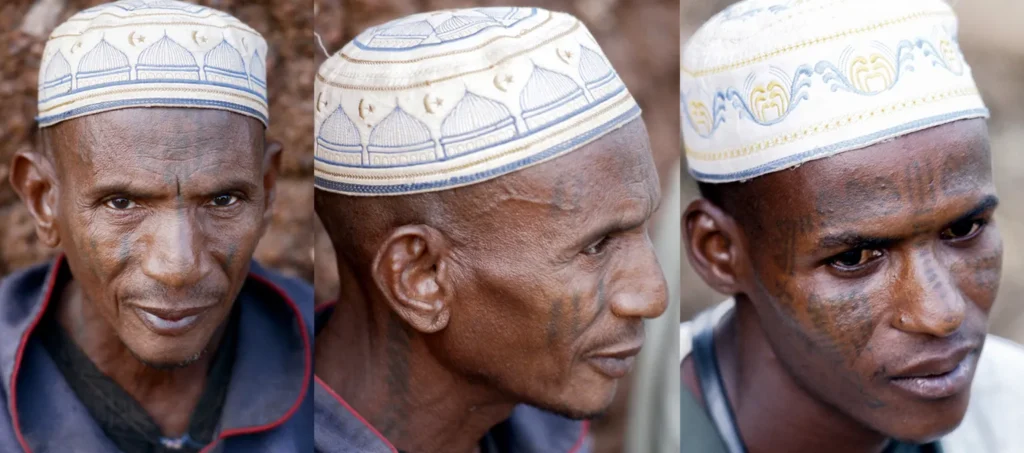
Tattoos were often created by cutting the skin and rubbing in ash or other substances. They served as rites of passage, tribal identification, or protective symbols against evil spirits.
In some Akan communities, markings might signify status, lineage, or initiation into adulthood. The Ga people similarly used scarification and tattoos to denote beauty, courage, or group affiliation.
Fast forward to modern day, tattoos have taken on different meanings with a different form of application to the body.
As Ghanaian society gets exposed to Western culture and tattooing through television and social media, there is growing interest in experiencing that culture.
Social Media and Cultural Influence
The Labari Journal gathered information from some individuals on social media to find out about their interests in tattoos.
Most who responded stated they had at least one tattoo, with reasons for getting them being of a “personal” nature.
Maame, a 30-year-old practicing lawyer in Accra with four tattoos, says she’s always been a fan of them.
“I actually just like tattoos,” she said when asked why she got them done. “I actually just like the concept. I’ve always loved them and I’ve always known that I would get a few of my own.”
Initially, she says her mother was worried that her tattoos might affect her socially. But over time, those fears have been allayed.
For Maame, her tattoos are symbolic, and it has not crossed her mind to remove them in the future if given the option.
“I love my tats. They’re a part of me. They’re reflective of my journey in figuring what I like”.
Nii, a 42-year-old who has one tattoo, says he’s open to getting more in the future.
“I like tattoos and will definitely get more. I don’t care how people think or perceive me based on my tattoo,” he said.
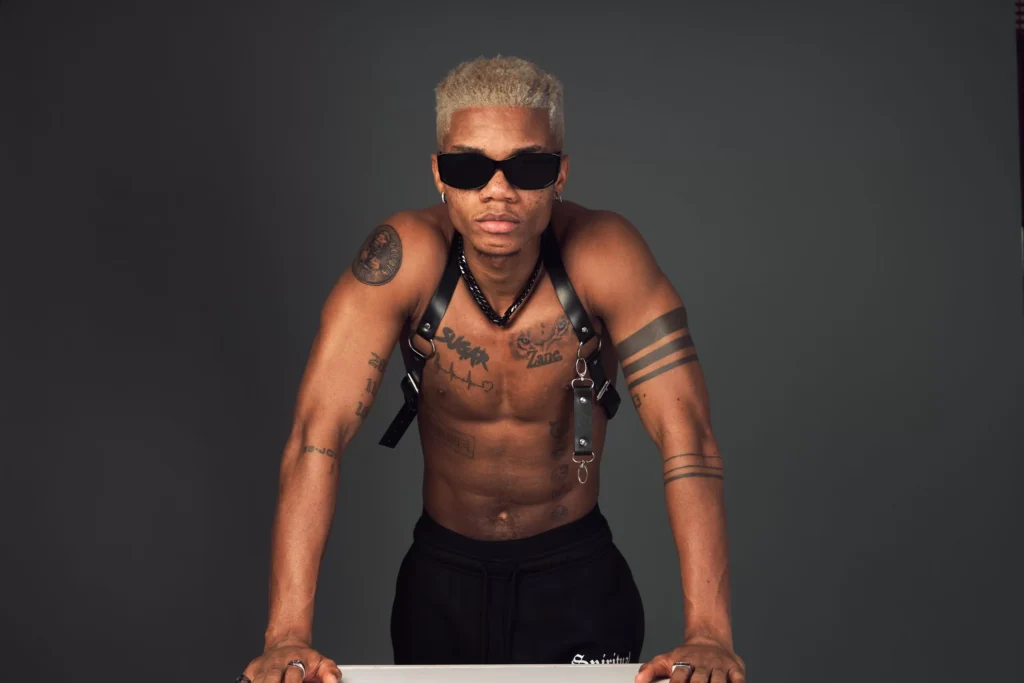
Local entertainers and celebrities have also embraced tattoo culture.
High-profile musicians such as Sarkodie, Stonebwoy, and Shatta Wale sport visible tattoos, normalizing the practice among their fans.
“I think a lot of tattoo parlors will be closed because of personal hygiene and how tattooing are being done in open ventilation and stuff like that.”
Winston (Vas Designs) on health regulations for tattoo parlors
Growth of the Tattoo Industry in Ghana
With an increased demand for tattoos, there has been a steady rise in professional tattoo studios, particularly in major cities like Accra.
These artists offer a wide range of designs, from traditional African symbols to contemporary Western styles.
Some notable tattoo parlors in Accra, such as 14.10. Studio, Francois w Simpson, and Vas Designs have gained recognition for their artistry and professionalism.
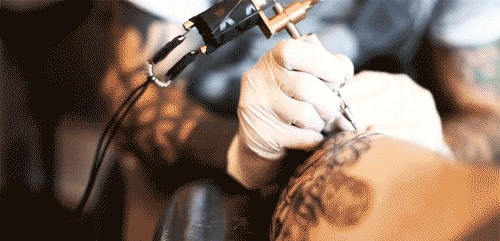
Tattoo artists typically use electric machines, known as “tattoo machines”, to insert pigment/ink into the skin’s dermis layer.
Most standard tattoo ink colors come from heavy metals, including antimony, beryllium, lead, cobalt-nickel, chromium, and arsenic.
Depending on the size, getting a tattoo can take anywhere from one to four hours. Large tattoos can take longer and require multiple sessions to complete.
The size of a tattoo can also affect how much you need to pay.
When The Labari Journal asked Vas Designs about tattoo pricing, he said clients can expect to pay GHC 400 at the very least, to GHC 12,000 for larger tattoos.
The price may vary according to the tattoo artist.
Tattoos used to be considered “permanent” when completed, but thanks to advanced technology, they can now be removed using a specialised laser machine.
Some tattoo artists, like Francois, offer laser tattoo removal services to clients.
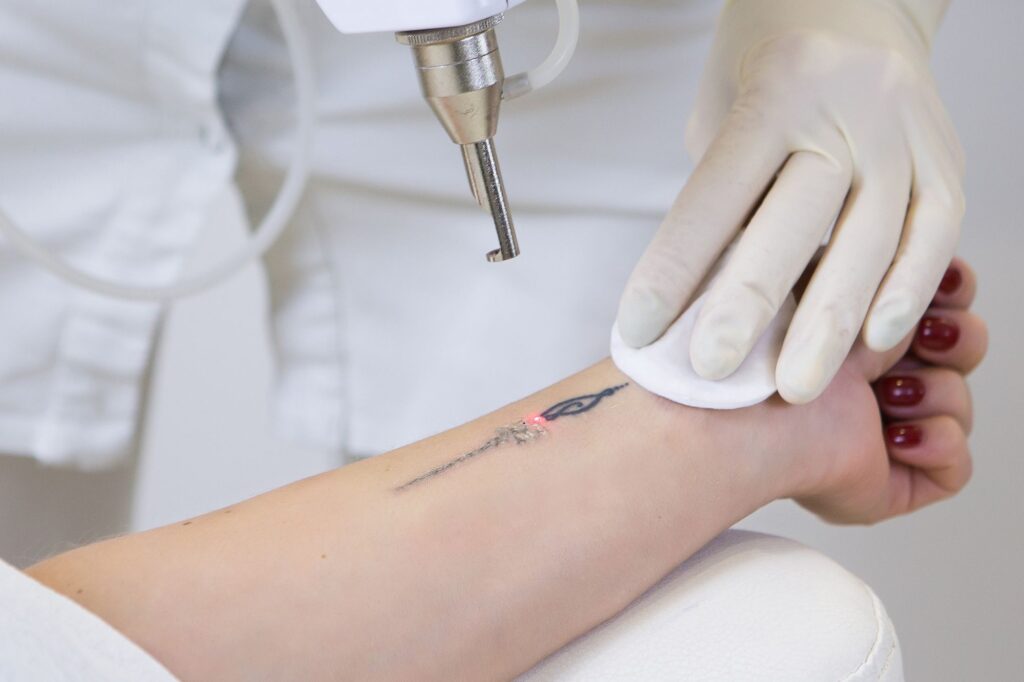
As far as regulation, there are currently no expressly written guidelines or certifications for tattoo artists by a local governing body.
Winston (Vas Designs) stated that he would not mind regulation in Ghana’s small but growing tattoo space. He did note that a lot of tattoo parlors would probably close down if regulations went into effect.
“I think a lot of tattoo parlors will be closed because of personal hygiene and how tattooing are being done in open ventilation and stuff like that,” he said.
But most experienced tattoo artists The Journal spoke to stated that they provide the necessary sterilization, hygiene, and aftercare education to ensure client well-being.
“…while freedom of expression is important, it’s also wise to recognize that certain environments may not be accepting of visible tattoos.”
Flo, when asked about tattoo stigma in Ghana
Tattoo Stigma Still Exists Due To Religious Beliefs and Ignorance
Even though tattoos are steadily going mainstream in Ghana, there is still stigma in some circles in the Ghanaian community.
Winston (Vas Designs) said tattoos often give off the impression of negativity.
“One misconception is that when you have a tattoo in Ghana, people assume you’re a ‘bad’ person and all that“, he said.
Some religious groups strongly oppose tattoos, citing biblical verses that discourage body modifications and stating that tattoos are “demonic”.
A popular Ghanaian gospel musician and preacher, Sonnie Badu, faced criticism for getting a very visible tattoo on his forearm. His critics argued that his tattoo was “sinful in the eyes of the Lord”.
Sonnie Badu pushed back, stating that “God is interested in the heart, soul and mind of believers and not their bodies.”
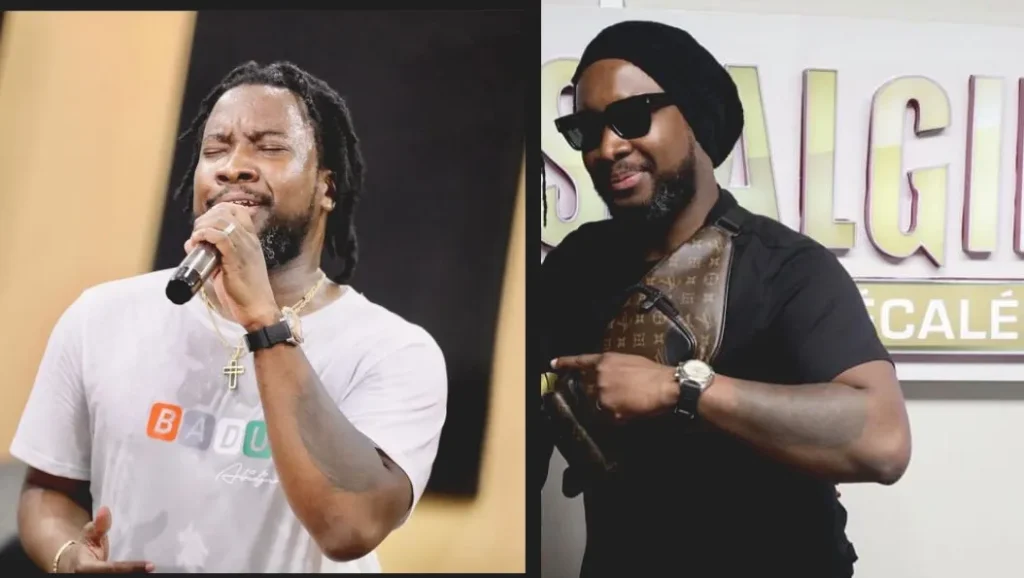
Some Employers may also view tattoos negatively, leading some professionals to opt for more discreet placements on their bodies.
The country’s Police and Military services have requirements against certain body marks and disqualify applicants if they have any visible tattoos.
Additionally, family acceptance remains a significant barrier for many to get tattoos. There is often disapproval from parents and older relatives who associate body art with “wayward” behavior.
For Flo, a 45-year-old who has one tattoo, discretion needs to be heeded when getting or displaying your tattoo in Ghana.
“I believe tattoos are perfectly fine when placed discreetly,” she said. “However, while freedom of expression is important, it’s also wise to recognize that certain environments may not be accepting of visible tattoos.”
Nakira G, a podcaster and YouTuber with very visible tattoos around her neck and arms, said she’s a little uncomfortable when out in public.
“I can’t say I feel comfortable with my tattoos in Ghana,” she said. “I’ve had a few people see my chest tattoo and mock it in a ‘let’s embarrass this stranger’ way by saying ‘Wakanda’ and throwing up the Wakanda symbol.“
She attributes some of it to ignorance, given tattoos’ unique history in Africa.
“I usually ignore it considering the history of tattoos in West Africa, I guess it’s just miseducation or lack thereof“.
Tattoo Culture Is Here To Stay
In 2021, 41-year-old Nigerian singer Tiwatope Savage-Balogun, popularly known as Tiwa Savage, caused a stir online when she debuted a sleeve tattoo that covered up most of her right arm.
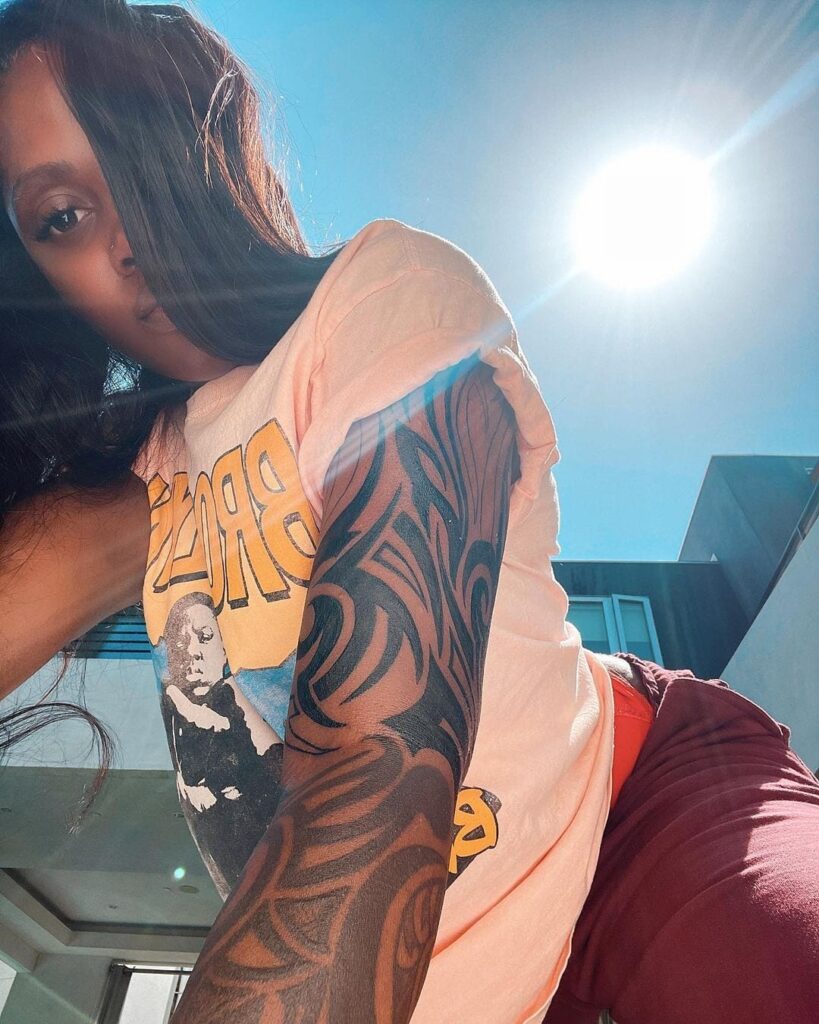
Even though there were some mixed views, a lot of comments, especially from younger people, were positive with one user on X saying, “Am I the only one that loves Tiwa Savage’s tattoo?”
The acceptance of tattoos in local society, especially by the younger generation, seems to suggest that tattoos are here to stay.
As noted earlier in this article, tattoos or markings in pre-colonial times used to carry deep social, spiritual, and functional meanings. Now, people opt for tattoos for personal or fashion reasons.
But tattoo culture still has some ways to go, especially when it comes to regulation and insurance, especially if there are any complications from getting a tattoo in Ghana.
Even though stigmas about tattoos might still exist, it hasn’t stopped people from getting them.
And if people do decide that they don’t like their “ink”, there’s always the option to laser it off.





